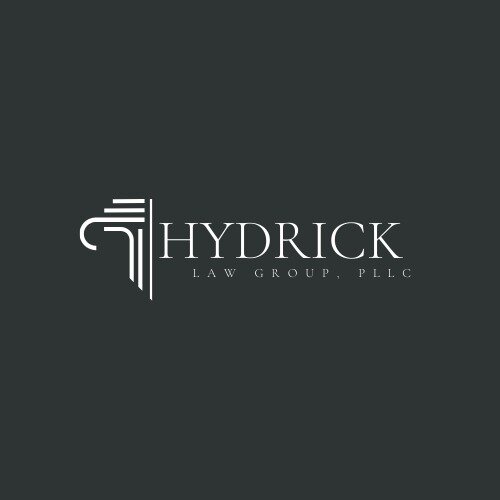Best Business Lawyers in Atlanta
Share your needs with us, get contacted by law firms.
Free. Takes 2 min.
List of the best lawyers in Atlanta, United States
United States Business Legal Questions answered by Lawyers
Browse our 1 legal question about Business in United States and read the lawyer answers, or ask your own questions for free.
- How do I legally protect my idea before selling or licensing it to a company?
- I have a makeup product idea that I want to sell or license, not the product itself. It is influenced by a product that was recently launched. Therefore, I want to sell/license to the company that launched said product. After some research, I contacted a patent attorney who explained that... Read more →
-
Lawyer answer by P.O OHIKHENA & Co
Good day,A patent will not be applicable since it's still an idea. You can go into an MOU(Memorandum of understanding) with the said company and also an NDA.You can contact me for my insight. Visit our profile and send us...
Read full answer
United States Business Legal Articles
Browse our 2 legal articles about Business in United States written by expert lawyers.
- NY 2026 Corp Tax: Thresholds & Franchise
- For tax years beginning on or after January 1, 2026, New York businesses will only be required to make estimated tax payments if their expected New York tax (including any MTA surcharge) is at least $5,000, up from $1,000. Many small and some mid-sized New York corporations and S corporations... Read more →
- Texas AI Compliance 2026 United States Data Privacy Rules
- By 2026, Texas agencies and many businesses that build, host, or support AI tools for government or consumer-facing decisions will face stricter disclosure and anti-discrimination requirements. Texas is pairing its new data privacy framework (Texas Data Privacy and Security Act) with AI-specific rules that target "algorithmic discrimination" in areas like... Read more →
About Business Law in Atlanta, United States
Business law, also known as commercial law, significantly impacts businesses in Atlanta, Georgia. It encompasses all laws dictating how to start, buy, manage, and close a business. Depending on their type of business, owners might need to understand specific areas of the law, including zoning, copyright, trademark, patent, employment and labor law, anti-discrimination law, and more. With Atlanta being a major commercial hub in the United States, understanding these laws becomes crucial for business success.
Why You May Need a Lawyer
Legal circumstances where you might require a lawyer include: starting a new business and need to determine the best business structure (partnership, LLC, corporation, etc.), dealing with any kind of contract (with customers, suppliers, or partners), understanding zoning laws, bringing or defending a lawsuit, or needing to lay off or hire employees.
Local Laws Overview
Atlanta, Georgia, boasts specific laws such as zoning laws that businesses need to adhere to. Zoning ordinances control the physical development of land and the kinds of uses to which each individual property may be put. Furthermore, Atlanta follows federal laws regarding employee rights and environmental regulations. However, Georgia's right-to-work laws, no state-level antidiscrimination law beyond federal protections, and a lower minimum wage than the federal standard contribute to a unique local business climate.
Frequently Asked Questions
1. Do I need a business license to start a business in Atlanta?
Yes, before opening your business in the city of Atlanta, you must apply for and receive a business license.
2. How do I register my business name in Atlanta, Georgia?
You can register your business name with the Georgia Secretary of State. If you're operating under a fictitious name or DBA (Doing Business As), you need to file that name with the county's Clerk of Superior Court.
3. What are the labor laws in Atlanta, Georgia that I need to know?
Georgia labor laws include the Right to Work law, stipulations on working hours, and minimum wage requirements. Georgia's minimum wage is $5.15 per hour, although it's generally superseded by the federal minimum wage of $7.25 per hour.
4. What are the tax laws for businesses in Atlanta, Georgia?
Businesses in Atlanta are subject to various taxes, including federal income tax, state income tax, sales tax, and property tax. The rates vary based on the type of business and its revenue.
5. Can a non-US resident start a business in Atlanta, Georgia?
Yes, non-US residents can start a business in Atlanta. However, there are additional steps and requirements they must follow.
Additional Resources
The Georgia Secretary of State’s office can assist with many legal needs around business setup and operations. For local business regulations, the Atlanta City Council website provides information on current local laws and ordinances. Furthermore, the Georgia Department of Labor is a useful resource for queries about state labor laws.
Next Steps
If you need legal assistance, consider contacting a business lawyer in Atlanta. This professional will help you navigate through legal obstacles. When choosing a lawyer, look for those who specialize in the area of business law that's most relevant to your needs. For instance, if you're opening a bakery, you'll want someone experienced in food service laws and regulations. Always check your potential lawyer's credentials and reputation before finalizing the selection. You can find and contact these professionals through various online directories or local law offices.
Lawzana helps you find the best lawyers and law firms in Atlanta through a curated and pre-screened list of qualified legal professionals. Our platform offers rankings and detailed profiles of attorneys and law firms, allowing you to compare based on practice areas, including Business, experience, and client feedback.
Each profile includes a description of the firm's areas of practice, client reviews, team members and partners, year of establishment, spoken languages, office locations, contact information, social media presence, and any published articles or resources. Most firms on our platform speak English and are experienced in both local and international legal matters.
Get a quote from top-rated law firms in Atlanta, United States — quickly, securely, and without unnecessary hassle.
Disclaimer:
The information provided on this page is for general informational purposes only and does not constitute legal advice. While we strive to ensure the accuracy and relevance of the content, legal information may change over time, and interpretations of the law can vary. You should always consult with a qualified legal professional for advice specific to your situation.
We disclaim all liability for actions taken or not taken based on the content of this page. If you believe any information is incorrect or outdated, please contact us, and we will review and update it where appropriate.
Browse business law firms by service in Atlanta, United States
Atlanta, United States Attorneys in related practice areas.















